HIStalk Practice Interviews Jeff A. Drasnin, MD, ESD Pediatric Group
Jeff A. Drasnin, MD is a partner with ESD Pediatric Group of Cincinnati, OH
Tell me about yourself and the practice.
We are located in Cincinnati, Ohio. We have two office locations, one more of a city office and one more of a suburban office. There’s a total of seven practitioners, five of which are physicians and two nurse practitioners. The practice was founded all the way back in the forties, so it’s kind of grown over the years. We provide care to primarily insurance-carrying patients, although we do do a percentage of Medicaid.
We have about 10,000 patients in our practice, so I would call us kind of a medium-sized pediatric practice. We are not hospital-owned. We are affiliated with Cincinnati Children’s just in the sense that we take care of patients there, but we are not on the payroll of Cincinnati Children’s in any way. But when we started looking for IT solutions going back to the mid-2000s, we were in an all-paper situation as people were back then. We outsourced our billing in order for someone to do our collections for us. Years and years ago we did our own collections, but doctors doing collections – it’s kind of like bicycle mechanics fixing cars. It’s not really what we’re designed to do.
We used a company that we didn’t like because we never knew where our money was. But we also knew that we didn’t do it very well, so initially the electronic piece for us came in the form of collections. That’s where we got hooked up with athenahealth in 2007, because their web-based technology really improved our collections. You can’t run a practice and/or a business without the cash. That was the first piece. And then as things moved on, we wanted to go completely electronic and we picked up the second piece of their offering, athenaClinicals in May of 2009. Our first step was to get our financial house in order, which we were able to do, and then we moved on to the clinical aspects and have been running with that ever since.
Tell me about the selection process for both the financial and clinical pieces.
A lot of it was luck, and I’ll say that to this day. We had several different vendors come and make presentations to us. Initially, we had found athena through one of my staff that went to another medical office and said, “Hey, what are you guys using? What do you got?” And then I followed up on that and started calling some practice administrators in town that had already used a collections piece, asking who do you use and do you like them and what regrets do you have and what could be better, etc. And when I talked to the group that was using athena at the time, the only regret this office manager had was that they didn’t choose them sooner. That was it. And now, six years later, I would actually give the same answer if somebody asked me that question.
The thing that we were upset about with our collections company is we didn’t know where our money was going. Our staff punched all these claims into the computer and then we sent it to this other company. We never knew what was coming. We just literally sat there and watched the bank accounts on a daily basis, kind of hoping we’d get something. But we had no idea what was coming, what was being written off, what wasn’t being paid per contract and all those things. With athena what we liked the most was that it was very transparent, that no claim was going to be written off by them. If we wanted to drill down on even a single claim, we knew where it was, and they did the vast majority of the work. We didn’t get rid of any staff – we repurposed people to do better things. Our days in account receivable went from being in the forties or fifties down to somewhere like 16 or 17 now.
Our cash flow has been much smoother in the sense that I didn’t have to hope and pray that we were going to get money in the account today. I know roughly X number of dollars comes relatively smoothly into the account on a daily basis, which is kind of nice. You can budget things and go from there.
So, we were on athenaCollector for a couple of years. Then we started looking at the medical records, and it just made sense to us to use one that was integrated. I know some of the other practices in town that use athena for their collections and they use a different medical record system. And everything’s fine and they don’t have any problems with that. But the way we looked at it, if athena can do the EMR piece anywhere close to as well they do the collections piece, well, let’s just choose them. We’ve had a great experience so far, and again we’re going on over four years now. I still have no regrets.
Did you seriously look at any other EMRs?
Yeah, we did. In Cincinnati, there’s a group of pediatricians that were using NextGen, which is a little bit supported by Cincinnati Childrens in kind of a weird way, with the Stark Law exemptions. And we looked at that, we looked at Allscripts, we looked at a couple of other different ones. But we were very much attracted to the web-based concept. We loved the fact that we were not going to maintain servers at our office.
We’ve got one IT guy who comes here every once in a while just to make sure that all the computers are up and running, the network’s running okay, and when people have log-in problems or a computer gets spammed or something like that. And that’s the extent of our IT costs. And that’s amazing. We don’t even have a T1 line. We have a DSL or a cable line, depending on which office we’re at. And as long as that is active, we’re ready to roll. And if there’s ever a glitch in the system, which there’s not been in a long time, you’ve got a relatively large company that is working to get every provider back up on the network at the same time. If we use something software-based and a server goes down or something happens, then I got to call my IT guy, he’s got to run over, he’s got to figure out what’s going on in my system, and it’s on my dime to get all that going, as opposed to being part of the subscription. We really like the subscription component, because the fees that we pay are very similar to just maintenance fees on software. The subscription fee for athena depends on what you’re using and it is not all that different than what you’re going to pay to maintain your software-based system.
We also looked at start-up costs with the other systems. Our start-up costs with athena were relatively minimal. But other pediatric groups here in town have spent tons and tons of money just getting up and running. We didn’t and that was huge for a small practice like ours. Prior to athena doing our collections, we really struggled from a cash flow perspective. Cash flow is just not an issue now. We’re busier than we were 10 years ago, but that’s only part of the reason why we’re in order. I think the number one reason is that the financial ducks are in a row and now everything is tied together.
Tell me about implementation process and how you got physician buy-in and changed workflows.
We liked our workflow and my goal when going electronic was to have an EMR that allowed us to still work in our office the same way that we always worked, because over the years we found a way that we felt works well. Two of the partners are on the younger side and like computers and we sold EMR as a positive from the beginning. We got all the physicians on the same page first, and then we took that positive message to the staff. I think if you don’t have the physicians on board – and that’s sometimes hard within larger groups – then there are those who basically sabotage the whole concept. Once people get thinking it’s going to be hard or difficult, then you’re behind the eight ball.
We were very lucky in the sense that there were two of us who researched and set things up and the other three partners said, “Whatever you guys think is best, we’re going to be with you on it.” And what we did is looked at our workflow. When we did the implementation we had two athena staff members come out to Cincinnati twice. They were also here on our go-live, they looked at our workflow to set up all the pathways so that we could run our office electronically the same way we’ve been running it before – but do it better. They came in and did a lot of groundwork and a lot of things were done remotely.
Since we had been on the Collector system for a while, athena could fill in a lot of things based on claims data, such as shot records and diagnoses, going back two years prior. We looked at our schedule going forward, picked a go-live date, and then we did what’s called a rolling abstraction. We decided as docs which types of things we wanted at our fingertips that should be scanned into the system for easy access. We didn’t scan entire charts; we scanned parts of charts.
We put in the information for all our upcoming well-checks and all of our pre-scheduled appointments and then we tried to put them in as quickly as we could when appointments were made. Within several months, we went from A to Z and back-filled everybody.
The other thing that myself and my other IT partner did was to make two sheets of paper that we presented them to the staff. We said, “Here’s how we do this task today.” With the next piece of paper we said, “Here’s how we do the same task tomorrow,” – meaning when we go live. Once our staff saw that they knew it really wasn’t that big of a change.
So with a vaccine, what do I do? Well, I used to go write the lot numbers in the log book. Now I go to my laptop and I enter my log numbers here. For a strep test I used to go write in this log book and I’d go put it on a little sticky note piece of paper and I’d stick it on front of the doctor’s chart. Now I go in the computer and enter the result, etc. We ran through that and you could see that there was a lot of nodding in the crowd and that’s where the real buy-in from the staff started.
We did that prior to the go-live so that when the go-live came, it was like, oh, okay, we know how we’re going to do it. And we actually did not change our schedule. We didn’t cut back at all. We just hopped on the bike and started riding. And it really wasn’t an issue.
Something that I hear from many of my compatriots who are also physicians is that with their go-lives they wean down the schedule and it’s chaos and craziness. We just didn’t have that. Maybe we were lucky, maybe some of it’s athena. I’m sure a lot of it’s athena. I think some of it was probably us, too. You got to have buy-in and you’ve got to have buy-in before you do it. And I think that’s where we were in one sense very lucky.
What kind of devices are the physicians using for their charting?
We started out with Lenovo X61s, which were tablets with pens. We bought 15 or 20 of them. The physicians and the medical assistants were all using the same one, but the girls on the phone just used desktop PCs. We ran those until probably about a year ago. Those were Windows XP and they were fine and still functional, but as athenaClinicals has gotten more in depth, in order to create these screens that are our chart, you’ve got to have a processor that’s going to pound through some of that. We found these basic dual core Intels were fine, but things were slowing down a little bit.
The most frustrating thing that could happen to any physician or any provider is slow. When you click on something, it better come up right away. We’ve upgraded and our physicians now carry Lenovo Yogas, the Windows 8 touchscreens. Those were a little bit on the expensive side, so for the staff we ended up getting Acer Windows 8 touchscreens and they work great. They love the touchscreen because there’s a lot of scrolling in Clinicals and using that finger on a touchscreen is great.
Do you enter any free text?
I do still enter a fair bit of free text. I’m a fairly good typist. We have templates and lots of clicks but I still find that when I write down the history for a patient, I still like to type a couple sentences. So I’d be lost without my keyboard.
Are you typing in front of the patient?
I try not to do too much typing with the patient. I carry my Yoga into the room and I use it mostly for reference. Sometimes I’ll enter in a couple orders if I can multitask that and still maintain eye contact. I try not to stare at my screen in the room, but I like it because I can see what the last antibiotic they were on. I can see where their favorite pharmacy is. I can look at a shot record. I have the information at my fingertips to answer any questions that the parents are going to throw at me.
But, I try not to type my notes in there. I don’t want to change how I see my patients -I like how I see my patients. Instead of a folder, I carry the computer. I make a couple of quick notes, I put in orders, prescriptions, and things that must be done in real time. I do those pretty quickly. But a lot of times, I’ll fill in my charts later.
In the good old days when I was on paper, I would do the same thing. I would have a big pile of charts. I’d call my wife when I was done seeing patients and she would ask, “How many charts you got?” Well, I got like 15, so she says, “Oh, it’s going to be like, what, 45 minutes or I’ll see you in an hour?”
Whereas now with it being electronic and web-based, as soon as I see my last patient, I walk straight out the door. I’ve got young kids and I’m home for dinner on time every night. I play with the kids, help with their homework, put them to bed. And then I’ll polish off my charts on the couch with my feet up and ESPN on. From a lifestyle perspective, it was a game changer. I coach tee ball, I coach soccer. I can get to my kids’ practices because as soon as I’m done, I’m out the door and I can tinker with that later. It’s huge.
Are you or have you attested for Meaningful Use?
As pediatricians, we are kind of screwed, unless we take care of a Medicaid population, which we don’t, really. We don’t meet the 20 percent criteria. We applied for it but we’re not going to get any Meaningful Use money. But we’re using those same things for things like patient-centered medical home.
Are you using the EHR for any quality reporting initiatives?
Yeah, we’re actually in the process of getting the PCMH, the patient-centered medical home. The beauty of athena is all of your data basically lives in databases and can be sliced and diced in whatever way that you want to. I’m blessed that I have a practice administrator who’s also a CPA, who runs reports on this stuff all day long. She ran reports from the collections side for years before we went to Clinicals. And now, we can slice and dice and pick out populations and produce data very, very easily, which is tremendous for us.
We need that for PCMH. You have to prove that you do it better. We have an asthma initiative and take it one step farther using athenaCommunicator. Every year when flu shots come around, we send emails, texts, phone calls to all of our asthmatics. We actually are in a friendly competition with our other compatriots in town to try to see who can get more of their asthmatics their flu shots. We keep track of that stuff.
And with a couple of payers in town, there are actually P4P payments that we get based on hitting certain percentiles and it is very easy for us to report that. If we didn’t have the electronic system, we wouldn’t have the same ease. It’s one thing to have your data in a computer. It’s another thing getting your data out of the computer and that’s where a lot of practices that I’ve spoken with have issues. Practices who are not on athena and who are even more progressive than us, who got on electronic records even earlier than we did and have systems that produce good notes, but, they can’t get their data back out. They can’t run reports.
With athena, we can create the vast majority of reports ourselves, and if there’s something a little more detailed, then you can pay athena to do it for you. But we really haven’t needed to do that much. But we use the Communicator to improve patient care. We use it to schedule density. We work kind of like a dentist in the sense that, if it’s been six months since your last cleaning, you better believe you’ll got a postcard in your mailbox. We do the same thing electronically, so every time we see a patient, we put a tickler into athena that will tell the front desk to make that next appointment, whether it’s a check-up or a follow-up appointment. If they don’t make that appointment, we use the tickler to start calling the house.
For example, for a pediatrician, it’s check-ups. We want to get all of our patients in on an annual basis because we think that’s important, obviously. Once kids get a little bigger and don’t need a form filled out and are otherwise healthy, parents sometimes don’t take them in, even when insurance plans are paying for well childcare once a year.
Now they’re aware that they’re due for their check-up and they’ll come in. In my practice, we don’t have an open check-up appointment until mid-November. Our schedule’s booked. Not only is it better care, but from a financial perspective, it’s been tremendous for us. Same thing for our asthmatics. We like to see our asthmatics every six months so they get their tickler for an annual check-up, and in between at six months, we want to do an asthma check with them. We use the system to send emails and 80 percent of our patients active on our patient portal.
That’s an impressive number.
It’s amazing. I get messages and you can easily send back messages. The patient portal is mobilized so if you have an iPhone or an android, it pops up on your phone. I’ll have parents email me questions or send it through the portal and it pops right in my system and I answer it. They get an email right away and tell me that I’ve answered their question. I may go back and forth with them two or three times in the course of a morning and there’s no nurse involved in that. That type of communication is just insane, in a good way. Tthe families that use that are just blown away by the ease at which they can do that, that you can actually email your doctor and you might have an answer in 10 minutes. I come out of a room in between patients, look at the computer, click on a message, and answer it. It’s very easy and that’s really changed how we roll.
People don’t realize how cool it is until they do it. I joke around with some of my parents, and say you guys haven’t “portalized” me in a while. And then sure enough, at the end of the day I’ll get a message after they get home or something. For very easy, simple questions it streamlines care. And doesn’t cost me any time. If you were to call the office and talk to the nurse, what does the nurse do? She puts your question in the computer, sends it to me, I type it back to her, then she calls the patient back and says Dr. Jansen said this. Whereas with the patient portal, you can get a very quick question and it’s very, very easy. That’s the whole Communicator component – the patient portal, the reminder calls, the ticklers. When they send out those calls, the parent answers the phone and then presses a button, and can actually talk to a live operator at athena who actually schedules the appointment. That’s how our schedule stays so full to very little effort of my staff’s part. It’s pretty amazing.
Anything else that you’d like to add?
I could talk about athena into the night. I think that it’s helped make a small practice like ours look like a much bigger practice because we’ve got a multi-million dollar company behind us and everything that we do is run through them. Everything about the way that my office runs is different. We have two offices. Before, we had a phone room in both offices. Now it’s all centralized. The first part of it was to get the dollars in order. The second part of it was to improve the care. Those two things go hand in hand. I think that when you use a fully-integrated system–a collections system, an EMR system and then some sort of patient portal communication system – when you put all those together on the same platform, they seamlessly integrate.
And over time, they improve. Being web-based we get an update once a month or every other month. They’re not major things, so they don’t throw off everybody’s workflow. But a new button here, a new thing, a new that. And we don’t have to put any effort into that.

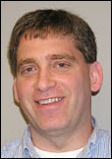
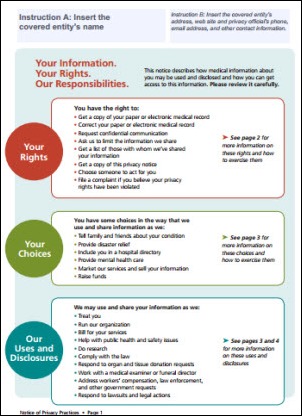
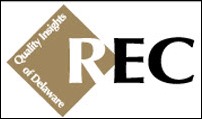
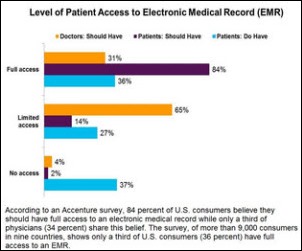
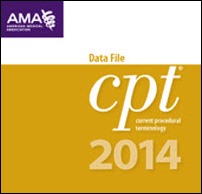
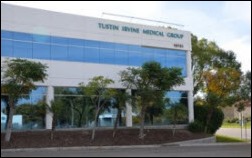
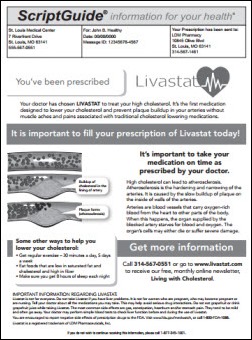

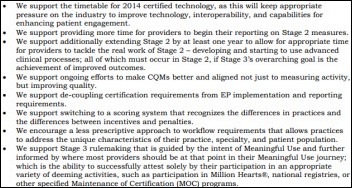



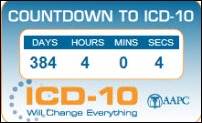

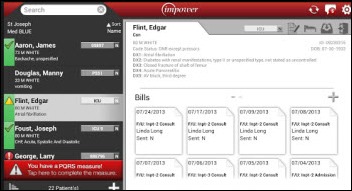

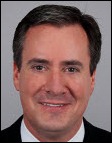
The article about Pediatric Associates in CA has a nugget with a potentially outsized impact: the implication that VFC vaccines…